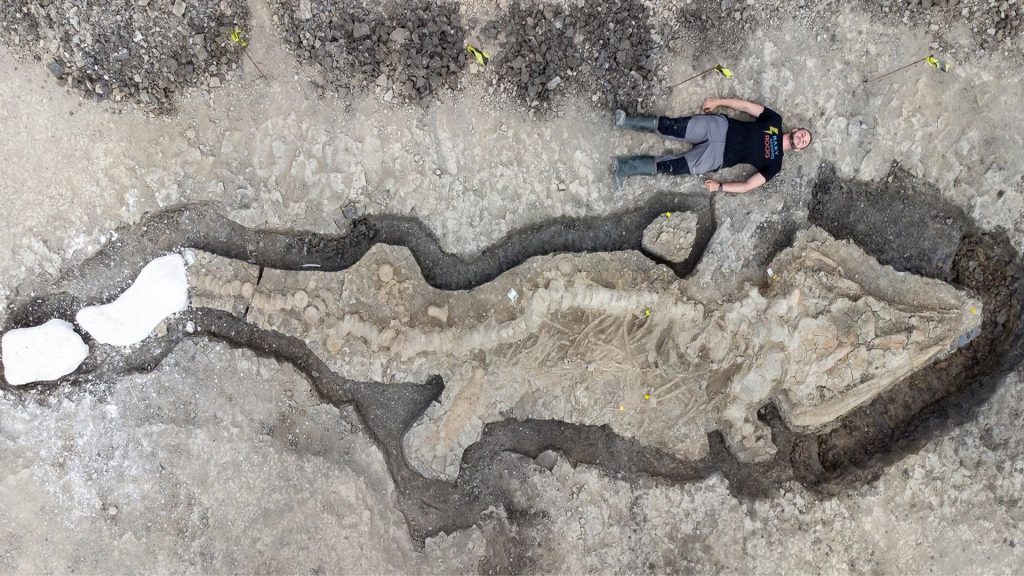
The fossilized remains of a colossal “sea dragon” have been unearthed in the U.K.
The 180-million year old ichthyosaur was discovered in England in near perfect condition, and is now considered to be the largest complete ichthyosaur ever found in Britain.
Icthyosaurs, which translates to “fish lizards” in Ancient Greek, were warm-blooded, air-breathing marine reptiles that closely resembled modern-day dolphins. They first appeared around 250 million years ago and went extinct in the Late Cretaceous, roughly 90 million years ago.
This epic artwork by @Paleocreations really brings the Rutland Ichthyosaur to life.
When excavating a prehistoric skeleton, it can start to feel like you ‘know’ the animal and become connected through millions of years. Bob’s art helped put a face to this old fossil friend. pic.twitter.com/BR2ltFabtr
— Dr Dean Lomax (@Dean_R_Lomax) January 10, 2022
The remains of the prehistoric predator were found by chance in a reservoir in the county of Rutland. Joe Davis of Rutland Water Nature Reserve was walking along part of the reserve to conduct routine maintenance with a colleague when he noticed something looked off. He knew it was something that needed further investigation, so he called in a team of paleontologists to assess the find. After 2 weeks of delicate work, the team was delighted to uncover a staggering 32-foot intact fossil of the beast.
Paleontologist Dean Lomax led the excavation, and was beyond thrilled about the find. “Our specimen, the Rutland Ichthyosaur or the Rutland Sea Dragon, is the biggest complete Ichthyosaur ever found in Britain in over 200 years of collecting these things scientifically,” he said. “During this time period, it would have been right at the top of the food chain. It’s an ultimate apex predator, perhaps one of the biggest animals in the sea worldwide.” He hopes this find will help other paleontologists fill in knowledge gaps of the species.
The remains are now being cleaned, preserved, and prepared in a lab, and will be ready for display within the next 2 years.




